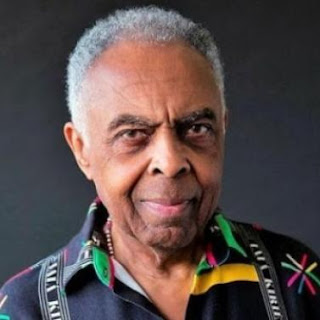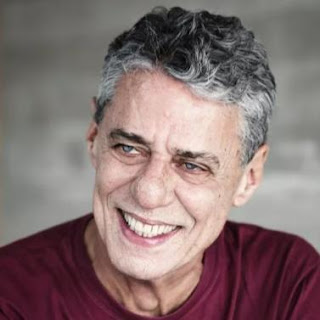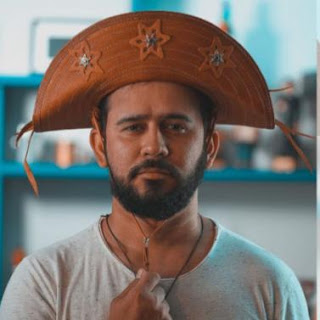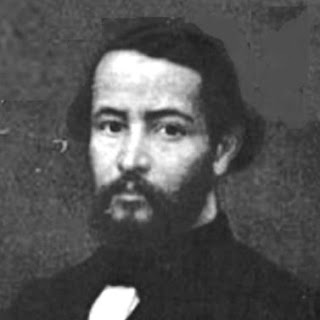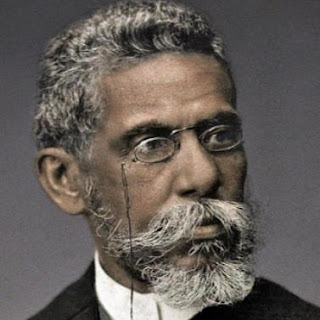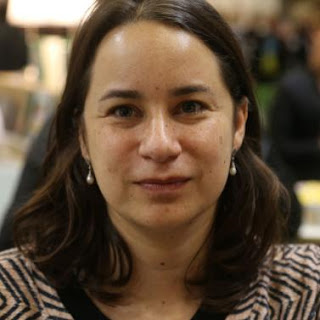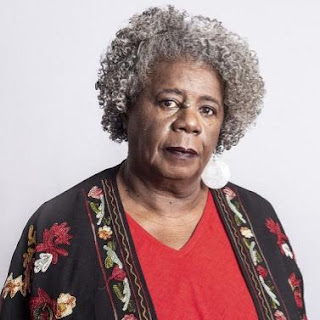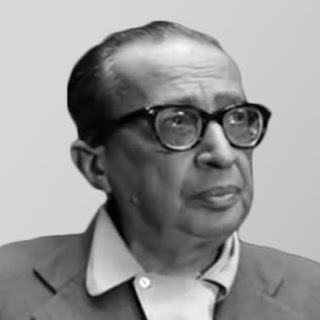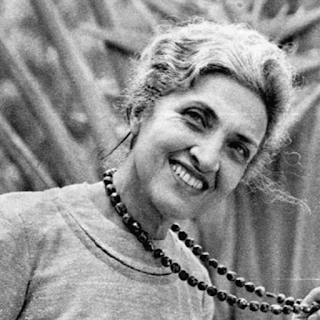Caetano Veloso: Biography and Poems | Brazilian Poetry
Biography.
Gilberto Gil: Biography and Poems | Brazilian Poetry
Biography.
Chico Buarque: Biography and Poems | Brazilian Poetry
Biography.
Bráulio Bessa: Biography and Poems | Brazilian Poetry
Biography.
Gonçalves Dias: Biography and Poems | Brazilian Poetry
Biography.
Manoel de Barros: Biography and Poems | Brazilian Poetry
Biography.
Theology of Junk
Things thrown out as junk are treasures to me;my favorites are cans.
Cans make poor words for people but they are concrete.
If you throw away a can, considering it junk: a beggar,
cook, or poet can pick it up and use it.
For that reason, I think cans are more satisfying, for
example, than ideas.
Because ideas, being objects conceived in the mind,
are abstract.
And if you throw away an abstract object as junk,
no one wants to pick it up.
For that reason, I think cans are more satisfying.
We take a can, fill it with sand and leave, and
push through the streets a custom-made sand-truck.
An idea, being an abstract object conceived by the mind,
cannot be filled with sand.
For this reason, I think the can is more satisfying.
Ideas are the lights of the mind - we know that.
There are brilliant ideas - we know that too.
But ideas also invented the atomic bomb, the atomic
bomb, the bomb.
Now I would like that words would illuminate
that what we call junk would illuminate.
Translated by Rosaliene Bacchus
Day One
Yesterday it rained in the future.Water soaked my embarrassments.
My sleepwear.
My set of dishes.
I sail on the flood’s rise to the image of a cork.
My canoe is light as a stamp.
These waters have no other edge.
From here I only glimpse the border of the sky.
(Might a vulture have his eye on me?)
I am lined up with the cup of the leaves.
Fish eat caranda fruits in the stands of palm trees.
The Illness
I never lived far from my country.However I suffer from farness.
In my childhood my mother had the illness.
She was the one who gave it to me.
Later my father went to work at a place
that gave this illness to people.
It was a place without a name or neighbors.
People said it was the nail on the toe at the end of the world.
We grew up without any other houses nearby.
A place that offered only birds, trees, a river and its fish.
There were unbridled horses in the scrub grass,
their backs covered with butterflies.
The rest was only distance.
Distance was an empty thing we carried in the eye,
what my father called exile.
Translated by Idra Novey
Machado de Assis: Biography and Poems | Brazilian Poetry
Biography.
Vicious Circle
The firefly danced in the air impatiently:"Oh how I wish that I could be that yellow,
That burns in the eternal blue, a candle far!"
And yet the star gazed on the moon with jealousy:
"If only I could copy such transparency,
Which, from the Grecian column to the Gothic sill,
Has contemplated lovers' faces sighingly!"
And yet the moon gazed on the sun with bitter will:
"Oh misery! If l could be that giant ball,
Immortal clarity, the sum of all that's light!"
The sun, though, leans his brilliant chaplet o´er the wall:
I´m burdened by this numen's aureole bright…
Pm wearied by this blue, unbounded parasol…
Why could I not be born a firefly at night?"
To Carolina
My sweet, here at the foot o fyour last bedIn which you're resting now from your long life,
I've come and always will, poor dearest wife,
To bring you the companion's heart you wed.
It pulses from affection tried and true
And which, despite all human drudgery,
Had made our life's existence ecstasy
And brought our home a world for me and you.
I bring you flowers,—remnants plucked now faded
From earth that saw us jointly walk this way
And now has left us dead and separated.
If l, within my wounded eyes today
Still carry thoughts of life I´d formulated,
Those thoughts once lived, but now they've gone away.
The Devil´s Wedding
In ímitation of the German
Satan had the thought one dayTo marry. How original!
He wished no ugly woman, nay,
A faithful soul, and virginal.
Take the counsel of a friend,
No marriage, Beelzebub, pursue;
Because a woman, as she's human
Is finer more genteel than you.
But he resolved upon this project,
Desired to see it come to pass,
And so he sought to win the object
That met his tastes, a bonny lass.
Take the counsel of a friend,
No marriage, Beelzebub, pursue;
Because a woman, as she's human
Is finer more genteel than you.
He cut his nails, he cut his tail,
He cut his horns, and then somehow
Our devil turned into a male
A hero of all heroes now.
Take the counsel of a friend,
No marriage, Beelzebub, pursue;
Because a woman, as she's human
Is finer more genteel than you.
To marry was his sole desire;
He traveled over sea and land,
He found a beauty to inspire
And made arrangements for her hand.
Take the counsel of a friend,
No marriage, Beelzebub, pursue;
Because a woman, as she's human
Is finer more genteel than you.
He was willing, she agreed,
They joined each other's hands asxone,
In harmony they did succeed
To tie the knot; the deed was done.
Take the counsel of a friend,
No marriage, Beelzebub, pursue;
Because a woman, as she's human
Is finer more genteel than you.
A year went by, and Satan found,
No parts grew back, nothing at all,
No nails, no tail that curved around ...
Except his horns, yes they grew tall.
Take the counsel of a friend,
No marriage, Beelzebub, pursue;
Because a woman, as she's human
Is finer more genteel than you.
Translated by Frederic G. William
Arnaldo Antunes: Biography and Poems | Brazilian Poetry
Biography.
Arnaldo Antunes (September 2, 1960) is a Brazilian musician, writer, and composer. He has published poetry and had his first book published in 1983. Antunes's poetry is the magic, he wields with apparently simple elements combines into challenging verbal artifacts. The polysemous of words is abounds in Antunes's poetry. Antunes also has worked with concrete and digital poetics over the years, he most notable for the sheer diversity of his work.Everything
All things inthe world don't
fit into an one
idea. But every-
thing fits in one
word, in this
word fits everything.
Translated by Jéssica Iancoski
Ana Martins Marques: Biography and Poems | Brazilian Poetry
Biography.
Ana Martins Marques is a Brazilian poet (Belo Horizonte, 07 de novembro de 1977). She has received various literary awards in Brazil, among them the Prêmio da Fundação Biblioteca Nacional and third place for Prêmio Oceanos. Her poems have been translated into English, French, Italian, and Spanish. His poetry combines formal elaboration with a reflection on life, promoting a narrowing between language and experience.The Sea
She saidthe sea
said
sometimes improbable things come
not merely plastic bags cardboard wood
empty bottles condoms beer cans
also umbrellas shoes fans
and a sofa
she said
it’s possible to look
for a long time
it is here I come
to clear my eyes
she said
those who were born far from
the sea
those who never saw
the sea
what will they make
of the limitless?
what will they make
of leaving?
will they think of taking a long road
and not looking back?
think of airport
highways
border controls?
when they say
I want to kill myself
will they think of blades
guns
poison?
for I only think
of the sea
One day
We didn’t sleep;we believed the night
could be replaced by coffee
and it was
our round heads
under a round moon
we were saved by the small restaurant open until so
[late]
keeping in its heart bright red
soup
you carried in your pockets
coins from three countries
dawn came like the cover
of a notebook
we talked as though writing subtitles
for photographs
we wanted so much
so little
we took the bus
at the last minute
traveled
side by side
like a bilingual
edition
Summer
The days aren’t hard
or compact,
they’re days of vacation,
bright and open days,
freed from the calendar,
days that recall those other days,
from some other childhood,
which perhaps never existed.
We want the sun
to stain our skin,
the sand to hurt us,
we spend all our money
on hot beers,
we let the water salt our bodies
and strip ourselves of so many other products
(the creams, the crimes).
Of these days we accept everything,
their excitement and excesses,
we light salty cigarettes
and let the light hurt our eyes,
we linger in conversations
brittle as these stars we find.
Apart from one another,
but at the disposal of the sun,
we accept each other
like one lizard
accepts another.
And at the end of the day
– the sun left its mark, our bodies traced,
there is nothing to tell
other than the sea and its repetition,
its waters taught us about an unstable silence,
made of foam,
we move in the rhythm
of the beach’s almond trees
– we are more porous
we’re thirstier,
we awaken in us
certain submarine thoughts
and a memory forged
in the light flesh of forgetting.
But this you can’t see in these photographs.
Translated by Elisa Wouk Almino
Conceição Evaristo: Biography and Poems | Brazilian Poetry
Biography.
Maria da Conceição Evaristo de Brito (born November 29, 1946) is a Brazilian writer. She was born in a favela in the southern area of Belo Horizonte, to a very poor family with nine brothers and her mother. She had to work as a domestic servant during her youth until she finished her normal course in 1971, at the age of 25. Conceição Evaristo is a great exponent of contemporary Brazilian literature. She writes about race, gender and class discrimination, especially of black women.In Writing...
In writing hungerWith empty-palmed hands
when the hole-stomach
expels famished desires
there is, in this demented movement
the dream-hoping
for any leftovers.
In writing cold
with the tip of my bones
caring in my body the tremor
of pain and shelterless-ness
there is, in this tense movement
the warmth-hoping
for any miserable little vest.
In writing pain,
alone,
searching for the resonance
of another in me
there is in this constant movement
the illusion-hoping
for our doubled consonance.
In writing life
fading and swimming
on departure’s test tube
there is, in this useless movement
the treacherous-hoping
for catching Time
and caressing eternity.
Translated by (?)
Women Voices
The voice of my great-grandmotherechoed as a child
inside the ship’s bowels.
Echoing moans
of a lost childhood.
The voice of my grandmother
echoed obedience
to the white-owners of everything.
The voice of my mother
whispered echoes of revolt
in the very end of the other’s kitchens
under the trusses
of whites’ dirty linen
along the dusty road
towards the slum.
My voice still
echoes perplexing verses
in rhymes of blood
and
hunger.
The voice of my daughter
uniting all our voices
gathers within itself
the dumb silenced voices
choking in our throats.
The voice of my daughter
gathers within itself
speech and action.
Yesterday - today - now.
In my daughter’s voice
the resonance will be heard
the echo of freedom-life.
Translated by Maria Aparecida Salgueiro de Andrade and Antonio D. Tillis
My Equal Body
In the darkness of the nightmy equal body
diffuses dangers
deciphers messages
whistles and tam-tams.
In equal darkness
my night body
opens volcanically
the ethnic skin
that dresses me.
In the darkness of the night
my equal body
floats tears, oceanlike,
sieving searches
nailing dreams
quilombo-gathering hopes
in the darkness of the night.
Translated by Maria Aparecida Salgueiro de Andrade and Antonio D. Tillis
Ana Cristina Cesar: Biography and Poems | Brazilian Poetry
Biography.
Ana Cristina César (June 2, 1952 – October 29, 1983) was a poet, literary critic and translator from Rio de Janeiro. She came from a middle-class Protestant background and was usually known as "Ana C." She had written since childhood and developed a strong interest in English literature. She spent some time in England in 1968 and, on returning to Brazil, she became a published author of note. She is considered one of the main names of the mimeograph generation, also known as the marginal poetry of the 1970s.First Lesson
The genres of poetry are: lyric, satirical, didactic,epic, light.
The lyric genre comprises lyricism.
Lyricism is the translation of a subjective feeling, sincere
and personal.
It is the language of the heart, of love.
Lyricism is also so named because in other times
sentimental verses were declaimed to the sound of
the lyre.
Lyricism can be:
a) Elegiac, when it treats sad matters, almost always death.
b) Bucolic, when verse about rustic subjects.
c) Erotic, when verse about love.
Elegiac lyricism comprises the elegy, the dirge, the
threnody, the epitaph, and the epicedium, or funeral
oath.
Elegy is poetry which treats dolesome topics.
The dirge is poetry in homage to a dead person.
It was declaimed beside a bonfire on which the corpse was
incinerated.
Threnody is a poetry which reveals the heart's sorrows.
Epitaph is a short verse form engraved on tombstones.
Epicedium is a poetry which relates to the life
of a dead person.
I look for a long while at a poem's body
until I lose sight of whatever is not body
and feel, separated between my teeth,
a filament of blood
on my gums
Translated by John K
Ladies’ Talk
I don’t even need to marryI get all I need from him
I won’t leave here anymore
I really doubt it
This subject of women has come to an end
The cat ate it and enjoyed himself
He dances just like a barrel organ
The writer no longer exists
But also doesn’t have to become a god
Someone’s at the house
Do you think he can stand it?
Mr. Tenderness is knocking
I couldn’t care less
Conspiring: I answer back again
Trap: dying to know
She’s strange
Also you lie too much
He’s stalking me
Who did you sell your time to?
I don’t really know: I slept with that klutz
It makes no sense at all
But what about the gig?
He’s being a good boy
I think it’s an act
Don’t even start
Translated by Brenda Hillman
Grams
The heart has little irony in the late afternoonCarnal secrets on the surface of the skin
skinny poems, just waiting
Life refuses to carry itself off to the hills
holes dug by weasels
grass flowering
In the pool the heart has almost no breath left
In the yards it fires wet
In closed rooms it avoids car horns
Life is put in charge of the windows
But it ends up plummeting in a rush
It does not fit Gives no support Is weightless
Translated by John K
Paulo Leminski: Biography and Poems | Brazilian Poetry
Biography.
Paulo Leminski Filho (August 24, 1944 – June 7, 1989) was a Brazilian poet, translator, literary critic, biographer, teacher and judoka. He was noted for his avant-garde work, an experimental novel and poetry inspired in concrete poetry, as well as abundant short lyrics derived from haiku and related forms. Leminski was a polyglot; he knew French, English, Spanish, Japanese, Latin and Greek. He translated into Portuguese works by Petronius, John Fante, Alfred Jarry, James Joyce, Samuel Beckett and Yukio Mishima.
Counter-narcissus
in meI see
the other
and another
finally dozens
trains passing
wagons full of hundreds of people
the other
what's in me is you
you
and you
just as
I am in you
I am in him
in us
and only when
we are in us
we are at peace
even if we are alone
Translated by Rosaliene Bacchus
Deep Inside
Deep inside, in the deep,in the deep, inside,
we would like
to see our problems
solved by decree
from this date on,
sorrow with no remedy
might as well be void
and in it - perpetual silence
extinguished by law any remorse,
damned you who look back,
behind there is nothing,
and nothing more
but problems are not solved,
problems have many heirs,
and on Sundays they all go to take a walk
the problem, his lady
and other tiny little problems.
Translated by Ane Montarroyos and Greg Berry
Iceberg
An Arctic poem,Of course, that is what I want.
A pale practice,
Three verses in ice.
A surface-phrase
Where no life-phrase
Will be possible.
No more phrases. None.
A null lyre,
Reduced to the purest minimum,
A blink of the soul,
The only unique thing.
But I speak. And, in speaking, I cause
Clouds of equivocations
(Or a swarm of monologues?)
Yes, winter, we are alive.
Translated by Lavinia Saad
Cora Coralina: Biography and Poems | Brazilian Poetry
Biography.
Cora Coralina is the pseudonym of the Brazilian writer and poet Anna Lins dos Guimarães Peixoto Bretas (August 20, 1889 – April 10, 1985). She is considered one of the most important Brazilian writers. Her first book (Poemas dos Becos de Goiás e Estórias Mais) was published in June 1965. She spent her working life as a confectioner in a small bakery, and where she drew upon her experiences of rural Brazilian culture to create her rich poetic prose, often featuring the Brazilian countryside, and in particular focusing upon life of the citizens who lived in the small towns across the state of Goiás.
Learn To Live
I don’t know... If life is short
or too long for us.
But I know that nothing we endure
makes sense, if we don’t touch people's hearts.
Most times it’s enough to be:
the receptive shoulder
enveloping arm
comforting word
respectful silence
infectious joy
flowing tears
caressing look
gratifying wish
encouraging love.
And this is not something from another world.
It’s what gives meaning to life.
It's what makes life
neither short
nor too long.
But it would be intense
true, pure...
While it lasts.
Translated by Rosaliene Bacchus
Cora Coralina, Who Are You?
I am a woman like any other,
I came from last century
and I brought with me all the ages.
I was born in the depletion of a mountain
Between the mountains and the hills.
“Far from everywhere”.
In a city from which they took
the gold and left the stones.
My childhood and adolescence took place
alongside this.
The jagged cliffs
responded to my desires.
And I immensely secluded in the highlands
that turned blue in the distance.
In a hunger for life I took
flight on the impossible wings
of dreams.
I come from last century.
I belong to a bridge
generation, between freedom
of the slaves and free work.
Between fallen monarchy
and the republic that installed itself.
All the rancidity of the past was
present.
The brutality, the incomprehension,
the ignorance, the carrancism.
Translated by Charlotte Markham
Aninha and Her Stones
Don't let yourself be destroyed ...
Gathering new stones
and building new poems.
Recreate your life, always, always.
Removes stones and plants roses and makes sweets. Restart.
Make your life mean
a poem.
And you will live in the hearts of young people
and in the memory of the generations to come.
This fountain is for use by all thirsty people.
Take your share.
Come to these pages
and do not hinder its use
to those who are thirsty.
Translated by (?)
Manuel Bandeira: Biography and Poems | Brazilian Poetry
Biography.
Manuel Carneiro de Sousa Bandeira Filho (April 19, 1886 – October 13, 1968) was a Brazilian poet, literary critic, and translator, who wrote over 20 books of poetry and prose. Bandeira's poems have a unique delicacy and beauty. Recurrent themes that can be found in his works are: the love of women, his childhood in the Northeast city of Recife, friends, and health problems. His delicate health affected his poetry, and many Many of his poems depict the limits of the human body. He contributed poems of political and social criticism to the Modernist Movement in São Paulo.
I Am Going To Pasargada
I am going away to Pasargada
There I am friend of the king
There I have the woman I want
On the bed that I shall choose
I am going away to Pasargada.
I am going away to Pasargada
Here I am not happy
There life is an adventure
I such a non-mattering way
That Joan the Mad Woman of pain
Queen and pretended insane
Is relative once removed
From the daughter-in-law I never had.
And how I will exercise!
I will pedal my bicycle!
I will ride the wild ass!
I will climb the greased pole!
I will bathe in the sea!
And when I am tired
I will lie on the banks of the river
And call the nymph of the water
To tell me the stories
That Rose used to tell me
When I was a boy
I am going away to Pasargada.
There´s everything in Pasargada
It´s another civilization:
It has s safe and sure way
To prevent knocking the girls up
It has automatic telephone
It has plenty of dope
It has beautiful prostitutes
For one to make love to.
And when I become sadder
So sad that I have no more hope
And when in the night it comes:
The desire to kill myself
— Ah, there I am friend of the king —
Then I have the woman I want
On the bed that I shall choose
I am going away to Pasargada.
Translated by John Nist
My Last Poem
I would like my last poem thus
That it be gentle saying the simplest and least intended things
That it be ardent like a tearless sob
That it have the beauty of almost scentless flower
The purity of the flame in which the most limpid diamonds are consumed
The passion of suicides who kill themselves without explanation.
Translated by Elizabeth Bishop
Absolute Death
To die.
To die body and soul.
Completely.
To die without leaving the sad remains of flesh,
Without leaving the bloodless mask of wax,
Surrounded by flowers,
Which will rot away — so happy! — one day,
Bathed in tears
Born less from grief than from the shock of death.
To die without leaving perhaps even a pilgrim soul…
On the way to heaven?
But what heaven can fulfill your dream of heaven?
To die without leaving a furrow, a trace, a shadow,
Without leaving even the remembrance of a shadow
In any human heart, in any human thought,
In any human skin.
To die so completely
That one day when somebody sees your name on a page
He will ask: “Who was he?...”
To die still more completely:
Without leaving even this name.
Translated by John Nist
Mário Quintana: Biography and Poems | Brazilian Poetry
Biography.
Mário de Miranda Quintana (July 30, 1906 – May 5, 1994) was a Brazilian writer and translator. He became known as the poet of "simple things", and his style is marked by irony, profundity and technical perfection. The main themes of his poetry include death, the lost childhood and time. Quintana also worked as a journalist and translated into Portuguese innumerable books, such as Mrs. Dalloway by Virginia Woolf.
Counter-Poemette
There they are, all the while
Standing there in my way:
They will well and wile
and I will while away!
Translated by John Howard
The Contra’s Little Poem
All of those who may
Forbid me to fly:
They will pass away
I’m passing by
Translated by Eduardo Miranda
Wee Protest Poem
All them folk there over yon
My path they do defy,
They’ll tweet along.
I Tweetie Pie!
Translated by Sarah Kersley
Billet-Doux
If you love me, love me discreetly
Don’t shout it from the rooftops
Don’t disturb the birds
Don’t disturb me!
If you love me,
That’s all right,
But take it easy, darling,
For life is short, and love is shorter still …
Translated by Giovanni Pontiero
Man and Water
Let me be what I am,
what I have always been,
a river that keeps flowing.
And my destiny is to follow...follow to the sea.
The sea, where everything begins again...
Where everything is renewed...
Translated by Eduardo San Martin
Carlos Drummond de Andrade: Biography and Poems | Brazilian Poetry
Biography.
Carlos Drummond de Andrade was a Brazilian poet and writer, considered by some as the greatest Brazilian poet of all time. Drummond was born in Itabira, a mining village in Minas Gerais in the southeastern region of Brazil. Drummond, as a writer of the modernist style, follows the writing mechanic proposed by Mário de Andrade and Oswald de Andrade; making use of free verse, and not depending on a fixed meter. In modernism, the predominant style which Drummond wrote in, styles were divided into lyrical and subjective or objective and concrete, Drummond would be part of the latter, similar to Oswald de Andrade.
Seven-Sided Poem
When was born, one of the crooked
angels who live in shadow, said:
Carlos, go on! Be gauche in life.
The houses watch the men,
men who run after women.
If the afternoon had been blue,
there might have been less desire.
The trolley goes by full of legs:
white legs, black legs, yellow legs.
My God, why all the legs?
my heart asks. But my eyes
ask nothing at all.
The man behind the moustache
is serious, simple, and strong.
He hardly ever speaks.
He has a few, choice friends,
the man behind the spectacles and the moustache.
My God, why hast Thou forsaken me
if Thou knew'st 1 was not God,
if Thou- knew'st that 1 was weak.
Universe, vast universe,
if 1 had been named Eugene
that would not be what 1 mean
but it would go into verse
faster.
Universe, vast universe,
my heart is vaster.
I oughtn't to tell you,
but this moon
and this brandy
play the devil with one's emotions.
Translated by Elizabeth Bishop
José
And now, José?
The party's done,
the light put out,
the people gone,
the night gone cold,
and now, Jose?
and now, yourself?
your nameless self
who cuts them dead,
you maker of verse
who loves, protests,
and now, José?
You're loverless,
no podium,
no tenderness,
drink won't go down,
smoke won't suck in,
the mouth won't spit,
the night's gone cold,
dawn hasn't come,
the bus won't come
nor laughter come
nor Utopia come
and it's all done
and it's all fled,
the white mold grows,
and now, José?
And now, José?
your gentle word,
your flash of fever,
your greeds and fasts,
your library,
your vein of gold,
your suit of glass,
your incoherences,
your hates, and now?
Key in your hand,
you want the door,
there's no more door;
you want to drown
but the sea dried up;
you want your home
—what home is that?
José, what next?
If you'd just scream,
if you'd just whine,
if you'd just play
a Viennese waltz,
if you'd just sleep
or at least get tired,
if you'd just die ...
But you won't die,
you're tough, José!
Yourself in the dark
like a beast in a den,
with no pagan gods,
with no bare wall
to lean back on,
with no jet horse
that flees at a gallop,
you march, José!
José, how come?
Translated by Virginia de Araújo.
To Love
What can one creature do,
Among his fellow creatures, if not love?
Love and forget,
Love and mis-love,
Love, unlove, love?
Always, even to eyes gone glassy, love?
What else, I ask, can a loving being do,
Alone in a rotating universe, if not
To turn too, and love?
Love what the sea brings ashore,
Love what it buries and what, in the sea-breezes,
Is salt, or love’s yearning, or plain anguish?
To love solemnly the desert palms,
Love what is surrendered or pregnant with demands,
Love the barren, the unpolished,
A flowerless vase, an iron floor,
The inert breast, the street seen in a dream, a bird of prey.
This is our destiny: to love without accounting,
Distributing it to the faithless and the hollow,
An unlimited donation to complete ingratitude,
And, still from the emptied shell, the nervous, patient
Scrounging out of more and more love.
To love even our own lack of love, and in our parched state
To love the implicit water, the implied kiss, the infinite thirst
Translated by Harrison Tao.
Cecília Meireles: Biography and Poems | Brazilian Poetry
Biography.
Cecília Benevides de Carvalho Meireles (Rio de Janeiro, 1901–1964) was a Brazilian writer and educator, known principally as a poet. She is a canonical name of Brazilian Modernism, one of the great female poets in the Portuguese language, and is widely considered the best female poet from Brazil, though she combated the word poetess because of gender discrimination. Her style was mostly neo-symbolist and her themes included ephemeral time and the contemplative life.
Motive
I sing because the moment exists
And my life is complete.
I am not gay, I am not sad:
I am a poet.
Brother of fugitive things,
I feel no delight or torment.
I cross nights and days
In the wind.
Whether I destroy or build,
Whether I persist or disperse,
— I don´t know, I don´t know.
I don´t know if I stay or go.
I know that I sing.
The song is everything.
The rhythmic wing has eternal blood,
And I know that one day I shall be dumb:
— Nothing more.
Portrait
I did not have this face of today
So calm
So sad
So thin.
Nor these eyes so empty
Nor this bitter mouth.
I did not have these strenghtless hands
So still
And cold
And dead.
I did not realize this change
So simple
So certain
So easy.
In what mirror did I lose my face?
Introduction
Here is my life:
This sand so clear
With drawing that walk
Dedicated to the wind…
Here is my voice:
This empty shell
The shadow of a sound
Preserving its own lament…
Here is my grief:
This broken coral
Surviving its pathetic moment…
Here is my heritage:
This solitary sea —
On one side it was love
And on the other forgetfulness.
Translated by John Nist.
[MODERN BRAZILIAN POETRY, AN ANTHOLOGY. Bloomington: Indiana University Press, 1962]
Vinicius de Moraes: Biography and Poems | Brazilian Poetry
Biography.
Marcus Vinicius da Cruz e Mello Moraes (October 19, 1913 – July 9, 1980), also known as Vinícius de Moraes and nicknamed O Poetinha (the little poet), was born in Rio de Janeiro, Brazil. As a poet, he wrote lyrics for a great number of songs that became all-time classics. He was also a composer of bossa nova, a playwright, a diplomat and, as an interpreter of his own songs, he left several important albums.
Sonnet of Fidelity
Above all, to my love I'll be attentive
First and always, with care and so much
That even when facing the greatest enchantment
By love be more enchanted my thoughts.
I want to live it through in each vain moment
And in its honor I'll spread my song
And laugh my laughter and cry my tears
When you are sad or when you are content.
And thus, when later comes looking for me
Who knows, the death, anxiety of the living,
Who knows, the loneliness, end of all lovers
I'll be able to say to myself of the love (I had):
Be not immortal, since it is flame
But be infinite while it lasts.
Translated by MariGoes
Sonnet of the Friend
At last, after so many past mistakes
So much retaliation, so much danger
There reappears in another the old friend
Never lost, always found again.
It’s good to sit by his side again
With eyes that contain the familiar look
Always with me a little troubled
And as always particular with me.
A creature just like me, simple and human
Knowing how to move and be moved
And to disguise my own delusion.
Friend: a being life doesn’t explain
Which only goes on seeing another born
And multiplies the mirror of my soul...
Translated by Rosaliene Bacchus
Sonnet on Separation
Suddenly laughter became sobbing
Silent and white like the mist
And united mouths became foam
And upturned hands became astonished.
Suddenly the calm became the wind
That extinguished the last flame in the eyes
And passion became foreboding
And the still moment became drama.
Suddenly, no more than suddenly
He who’d become a lover became sad
And he who’d become content became lonely
The near became the distant friend
Life became a vagrant venture
Suddenly, no more than suddenly.
Translated by Ashley Brown


